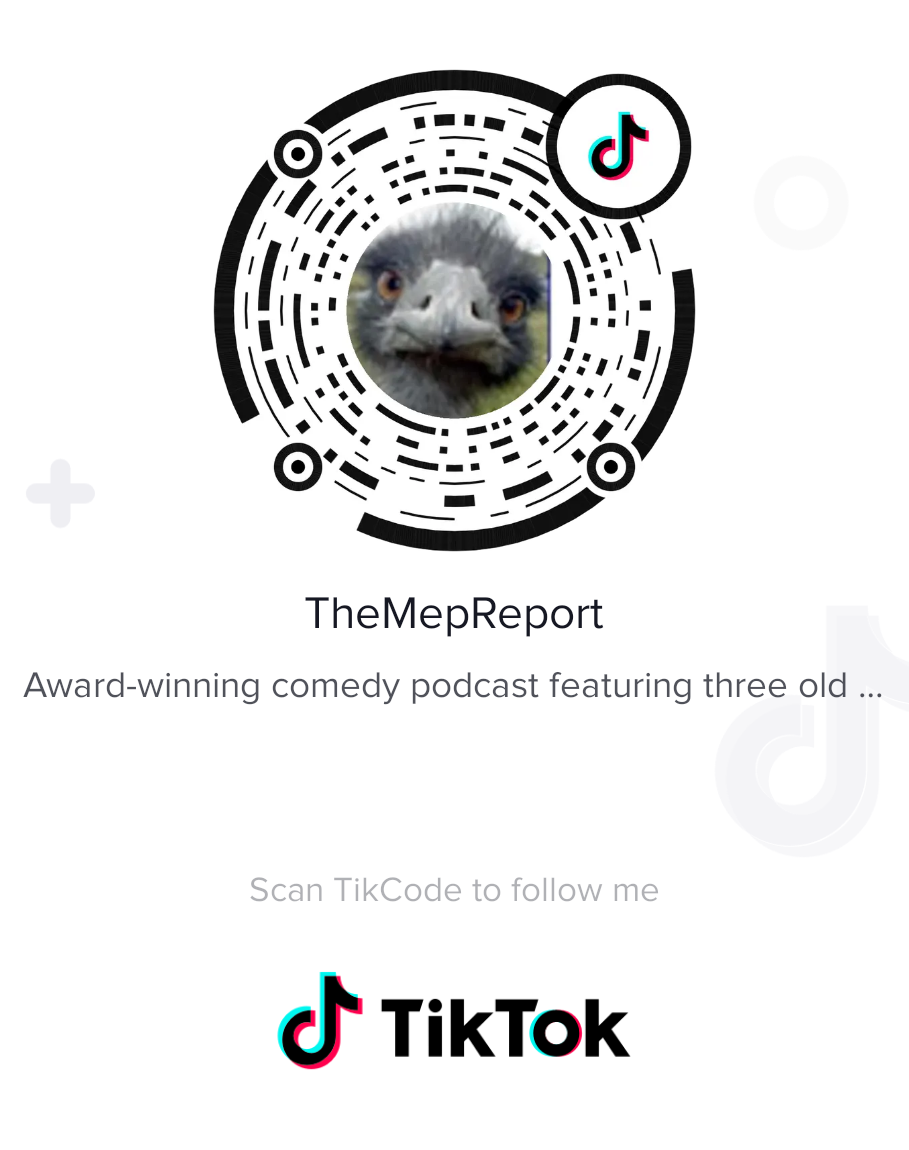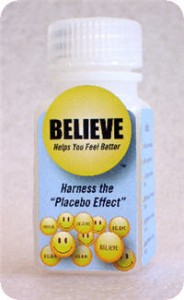The Golden Age of Placebo
As the nation’s health care debate/debacle (debatecle?) crescendos into to a high-pitched whine, one champion’s advances threaten to trump all the efforts of the medical community, pharmaceutical industry, and lobbying covens. And this champion, this potential savior, is an unlabeled, off-brand, non-invasive, patent-free, discount store sugar pill.
According to Wired magazine, placebo effects have dramatically increased over the past few years, making it monumentally tough to get new drugs approved by the FDA.
While the newfound effectiveness of placebos continues to baffle doctors and drug researchers, it comes as much less of a shock to this Mepper. Firstly, as cited in the Wired article, placebos seems to be wildly effective when treating depression and other mental ‘disorders’. How is it surprising that a purely mental treatment (a pretend pill) is the most effective medicine to treat a purely mental disorder? Isn’t this a much more direct form of treatment than a chemical approach? As we are beginning to learn, when it comes to altering molecular structures, chemists still can’t hold a candle to the power of the human psyche.
It also bears mentioning that pharmaceutical companies probably have themselves to blame for placebo’s rise to power. Here is an industry that spends billions of dollars in advertising and marketing inventing new and ever more vague disorders (i.e. Restless Leg Syndrome) while simultaneously convincing people that a new slew of wonder drugs are going to solve their problems. Pfizer, Merck, and Glaxo have won the battle for the hearts and minds of America. Virtually everyone now believes that pills can fix their problems. This campaign has been so incredibly effective, now it doesn’t even matter which pills patients take. Whether it’s derived from sugar, fairy dust, or unicorn turds, it will fix what ails ya.
However, in the Golden Age of Placebo, medical applications are just the tip of the iceberg.
Our current President ran on what was predominantly a placebo campaign. Yes, he had a great deal of policy expertise and wonkiness at his disposal, but the overriding message of the Obama campaign wasn’t any policy proposal or platform plank. It was simply that of “Hope.” Similarly, when our economy tanked (our mostly theoretical economy that no single human fully understands), our government attempted to spur the most important economic indicator of all — “consumer confidence.” If only there were a pill for that. Perhaps one day soon, there will be.
It seems that, for Americans, marketing is a far, far more important thing than producing. We don’t produce much of value any more, but we sure can craft a perfect 30 second spot to tout the amazingness of our nothing much. In a country where blowing smoke up people’s asses is a cottage industry, placebos should continue to be the most highly effective medicine.





Obama had the “Hope” method message. The Music Man had the “Think” method message. The Pharmaceutical Industry has the “Fear” method message. What do they all have in common with the Flim Flam Man, and the Marketing Industry? Heavy laden pockets at the public’s expense. Great blog Russ.
For me, this is the really core passage of the article you cite:
“Beecher’s prescription helped cure the medical establishment of outright quackery, but it had an insidious side effect. By casting placebo as the villain in RCTs, he ended up stigmatizing one of his most important discoveries. The fact that even dummy capsules can kick-start the body’s recovery engine became a problem for drug developers to overcome, rather than a phenomenon that could guide doctors toward a better understanding of the healing process and how to drive it most effectively.”
The unwritten subtext therein is that the profit motive was in play and THAT changed everything. No one can patent a method of distributing placebos or using the effectiveness of thinking you’ll get better to aid your recovery. You can only patent pills. So all that people want to develop are pills, not methods or approaches to health improvement. Once again, the profit motive is the screw that turns good into ill.
Yes, I love the part where the drug companies villanize placebos because it messes up their plans to pawn off their own useless pills. I wouldn’t put it past them to figure out a way to market placebos in the future, though.
At least the placebos wouldn’t have side effects including drymouth, loss of will to live, and leprosy.
Great take on the Placebo Effect. I personally recommend people use it to increase the healing power of what ever therapy they are using. As for the drug companies nothing personal but we are letting them lead us down the wrong path. We should pay them or the physicians only when we are well and not pay them when we get sick. This way they will have every reason to do all they can to heal us.
Nice, short, witty, far reaching take on the placebo concept. I like things that are far reaching- if one takes reality or a concept and bends it far enough in one direction one ends up right back where they started.